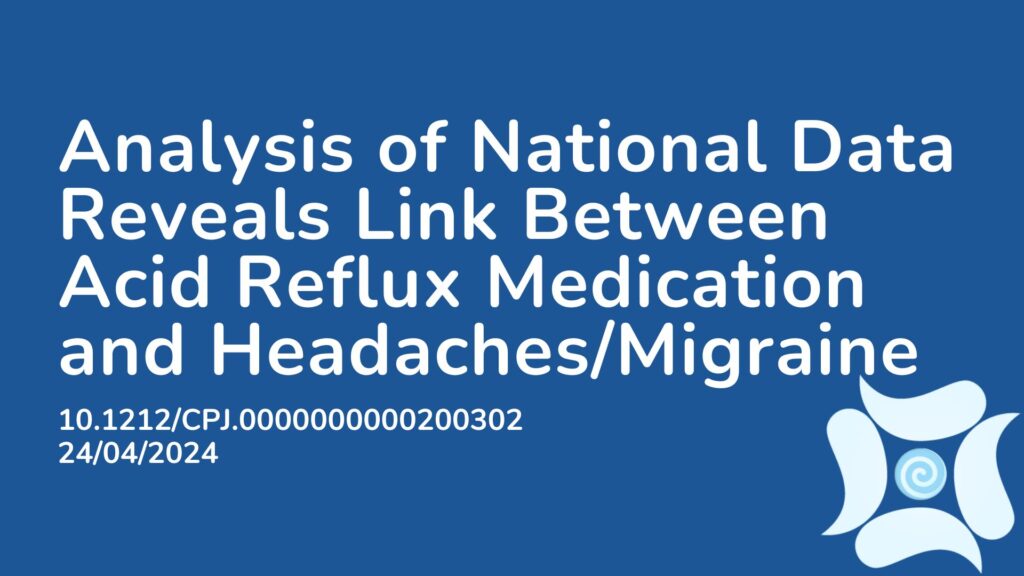Summary:
The occurrence of severe headaches and migraine has been reported in national data when acid-suppression medication is used, such as proton-pump inhibitors and other antacids. Due to this potential side effect, this study investigated the relationship between acid-suppression medicines and migraine or severe headaches. Using data from the 1999-2004 National Health and Nutrition Examination Survey, acid-suppression medication usage and migraine/severe headache reports were analyzed. Results showed higher odds of migraine/severe headaches with acid-suppression medication use, with no significant differences between the different types of drugs. These findings highlight the potential association between acid-suppression medications and migraine/severe headaches, emphasizing the need for further research and consideration when prescribing PPIs, which are often overprescribed.
Abstract:
Background and Objectives: Headache is an adverse event associated with the use of proton pump inhibitors (PPIs). Recently, migraine has emerged more specifically as a potential adverse event with PPI use. The objectives of this work were to capitalize on existing data to evaluate the association between migraine and severe headache prevalence and use of acid-suppression therapy, including PPIs, H2 receptor antagonists (H2RAs), and generic antacids; to compare risk from PPIs vs H2RAs; and to assess for potential mitigation by a dietary factor affected by acid-suppression therapy. Methods: Data from adults in the 1999–2004 National Health and Nutrition Examination Survey were used for this cross-sectional analysis. Acid-suppression therapy use was identified from self-report confirmed by product packaging review. Respondents who endorsed migraine or severe headache in the past 3 months were classified in the migraine or severe headache group. Dietary intake of magnesium was determined using one 24-hour recall interview. Multivariable logistic regression models were generated to analyze the relationship between acid-suppression therapy use and migraine or severe headache, and an interaction test was conducted to evaluate whether migraine or severe headache prevalence differed in relation to nutritional magnesium intake across acid-suppression therapy users and nonusers. Results: In 11,818 US adults, the use of acid-suppression therapy was associated with higher odds of migraine or severe headache for all types of acid-suppression therapy and use of any type, as compared with those who did not use acid-suppression therapy: use of PPIs (70% higher), H2RAs (40% higher), and generic antacids (30% higher). Differences between acid-suppression therapy were not significant. An interaction was observed for H2RA use and magnesium intake (p = 0.024). Discussion: These observations in US adults agree with previous findings that migraine or severe headache is a potential adverse event of PPIs, the most efficacious and most frequently used type of acid suppressing medication, and further suggest that other classes of acid suppressing medications (H2RAs and generic antacids) may also be implicated for migraine and severe headache. Future prospective analyses are needed to investigate migraine risk associated with acid suppressing medications while current evidence is sufficient to evaluate patients with migraine in light of recent deprescribing advice for PPIs.
Article Publication Date: 24/04/2024
DOI: 10.1212/CPJ.0000000000200302



